If you are wondering, sumneun-got means “hideaway” in Korean. At least, that is what a Google search told me. [UPDATE: see comments for why I changed the spelling]
But first things first.
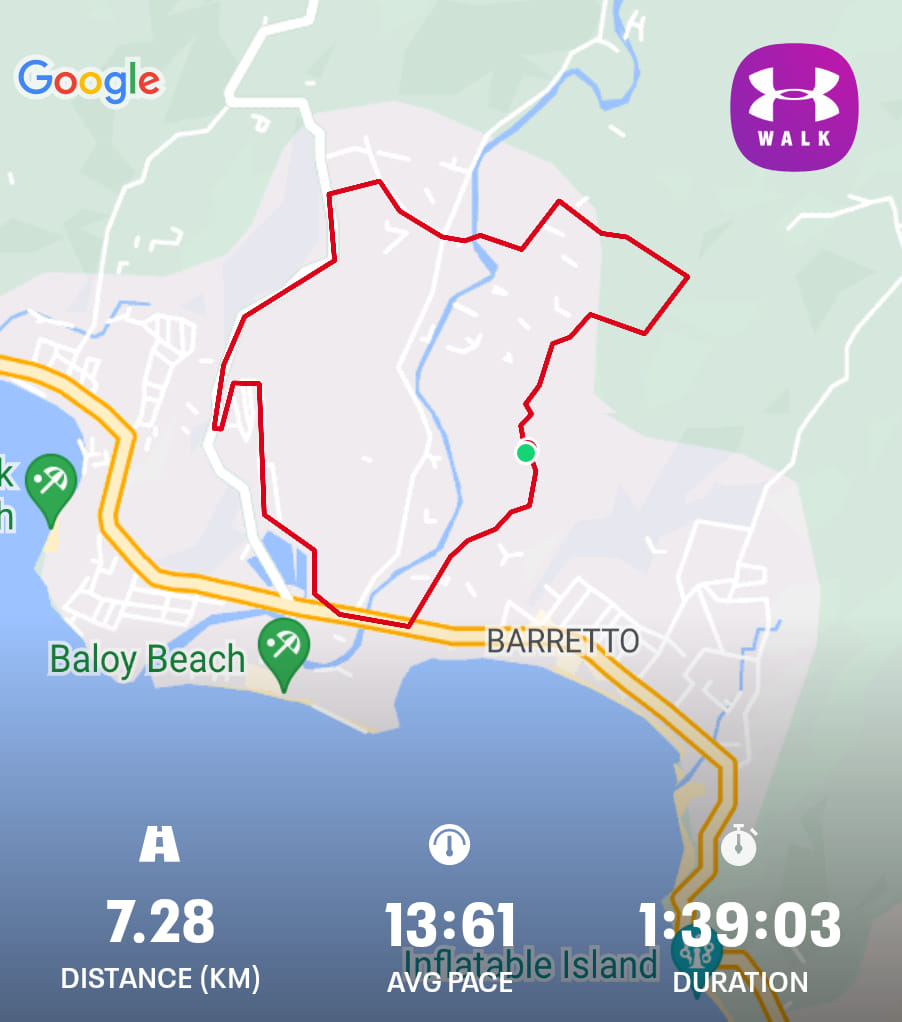
I finished season 1 of Manifest, and I’ll continue season 2 and see how it goes. I thought about the cliffhanger ending in the first season’s last episode and correctly guessed the outcome (I started the second season this morning). The storyline is becoming a bit more convoluted, but I’m still watching, which says a lot. I have a Biden-like attention span these days.
I also put the crockpot to work:

Then it was time to begin my evening out. It being Sunday, it was feeding time for the Hideaway crew. I decided to treat them to some Korean-style food for a change, so I headed out to John Kim’s restaurant. I knew what to order–bulgogi for Joy and chicken wings for the girls. But I took some menu photos while I waited.
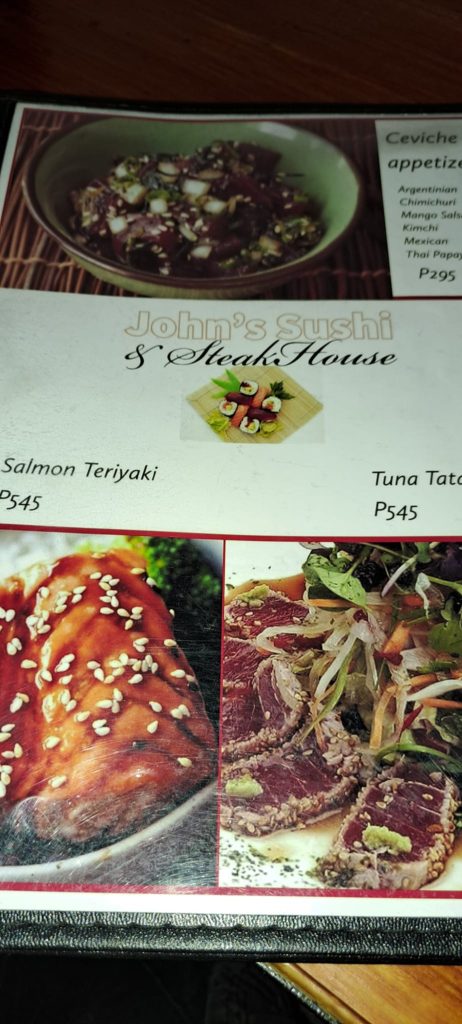

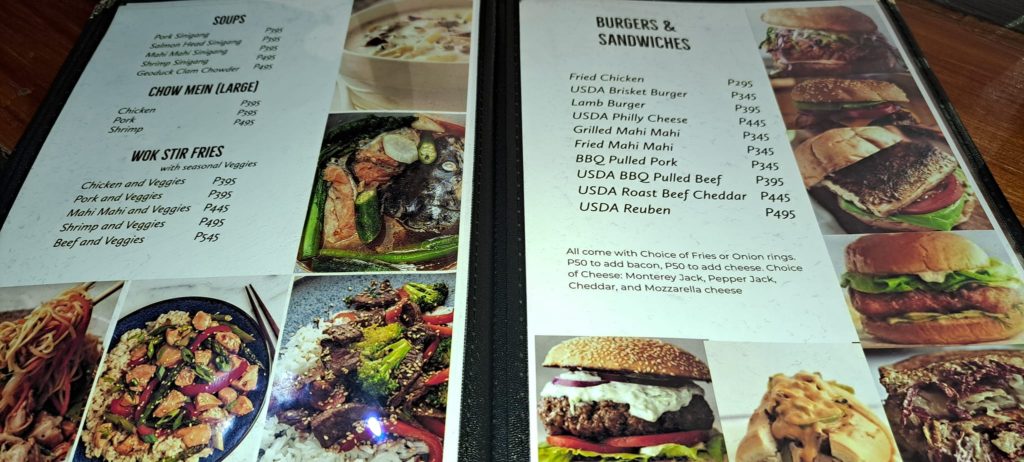
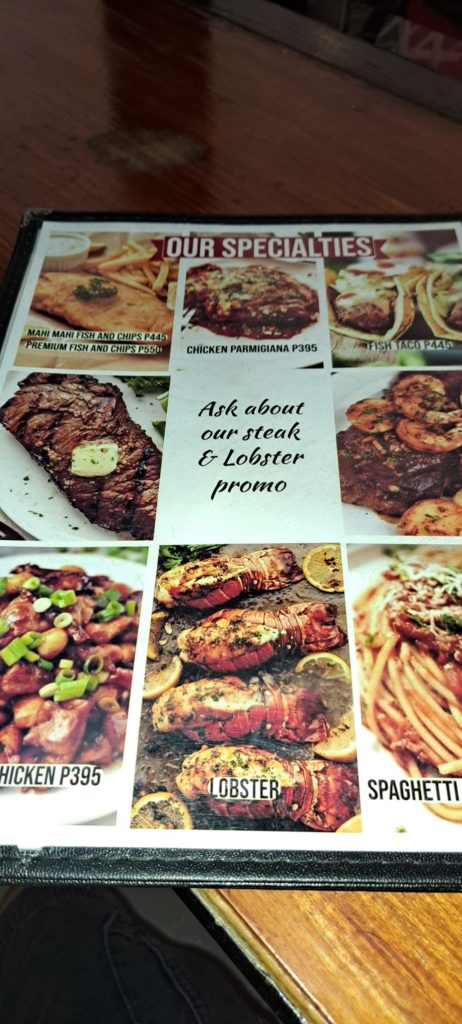
Got my order, paid my bill, then crossed the highway to the alley that leads to Hideaway Bar.


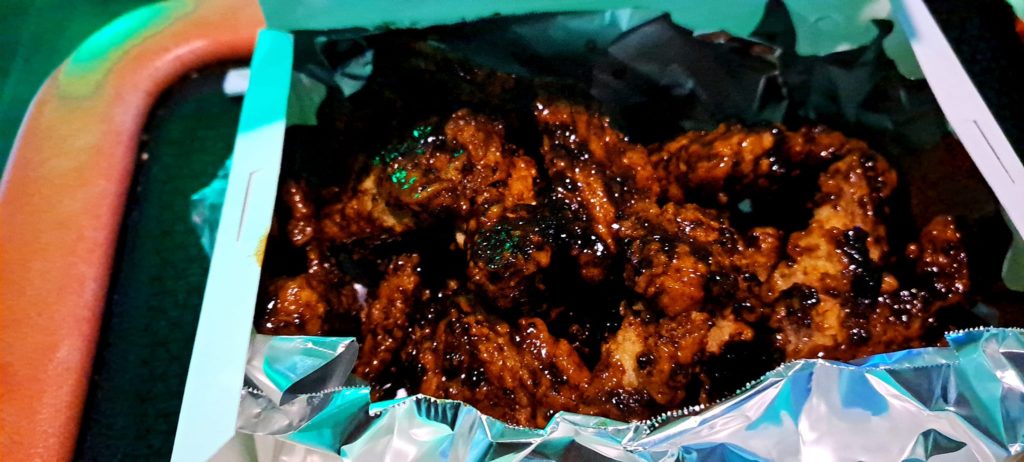

The girls all seemed to enjoy the food and expressed their gratitude. My duty done, I said my goodnights and headed up to the road to Cheap Charlies. I got a little perturbed that the bargirls had taken up all the seats with a view that I normally enjoy. I could have been an ass about it but decided to shrug it off after some initial grousing. Took a seat at the bar for a change.
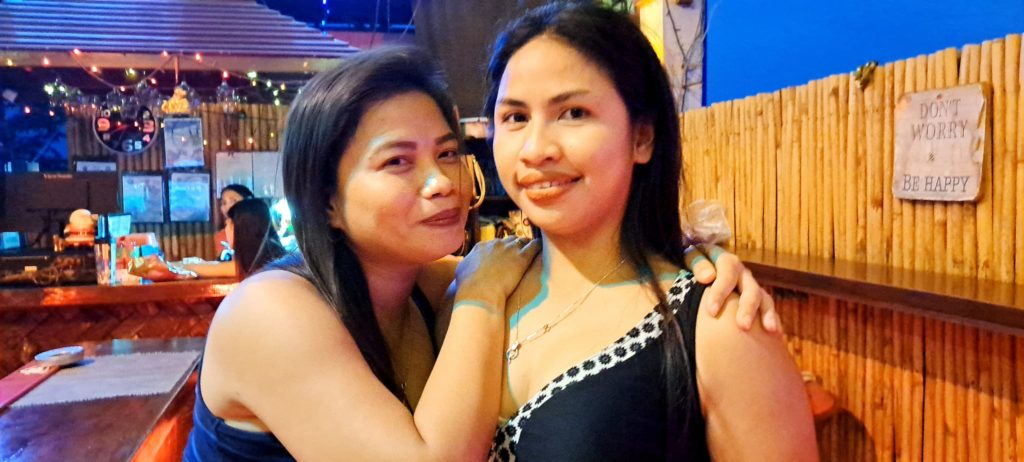
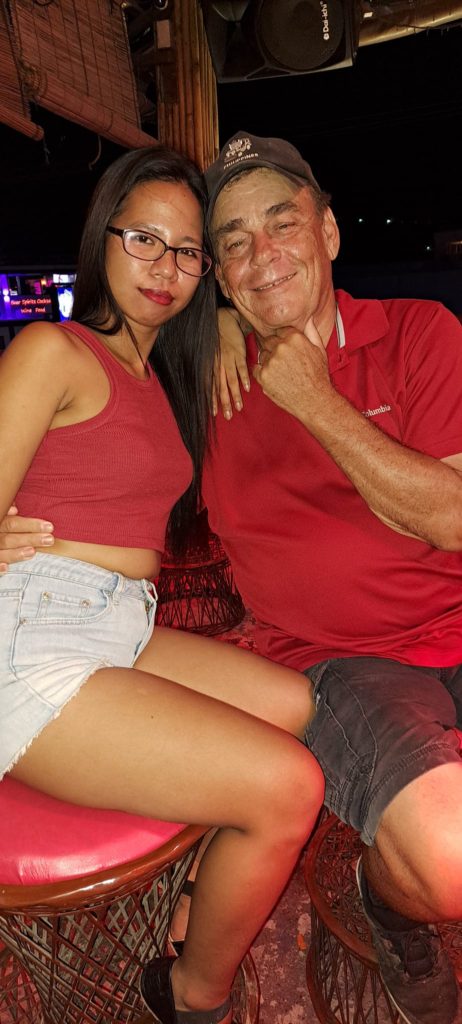
A few more drinks, and it was time to head out again. I decided to make one last stop at Wet Spot before heading home.

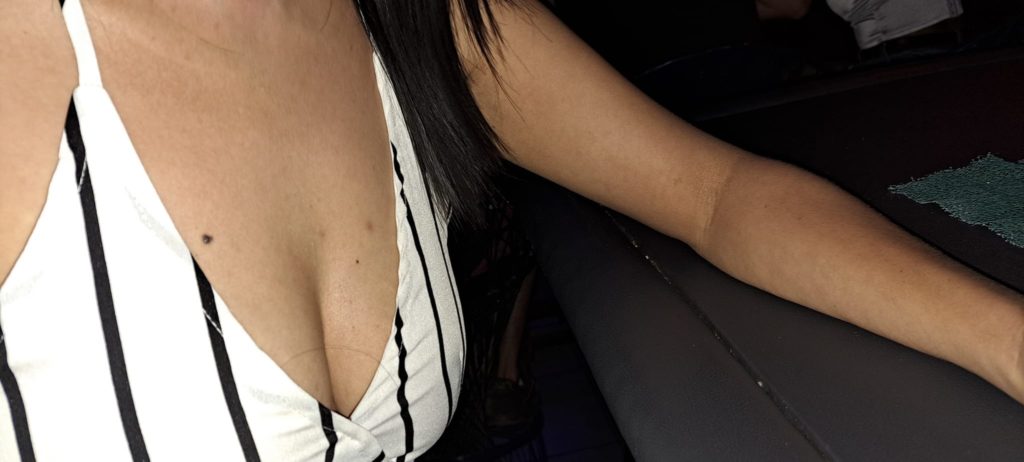
Clearly, it was time for me to go home, and that is just what I did. Made me a banana-mango smoothie for my bedtime treat.
And now it is time to get ready for another Hash Monday. It’s a Leech My Nuggets trail, so it ain’t gonna be easy. Pubic Head, the leader of the “sane” group of Hashers, has already plotted out our shortcuts. Let’s get to it!


That rendering, sumneun-gos, makes for a good opportunity to talk about transliteration versus transcription. Sumneun-gos is a transliteration, i.e., a literal letter-for-letter rendering of the original Korean. If a non-Korean-speaker were to try to pronounce that, actual Koreans would have some difficulty understanding because that last syllable isn’t pronounced “gos.” A transcription, by contrast, faithfully renders the sounds of the language such that, when a foreign reader tries to say the original word, s/he can pronounce it with some degree of accuracy.
So in Korean, “hideaway” is 숨는 곳, transcribed as sumneun-got. The verb sumda (숨다) is “to hide.” 숨는 (sumneun) is the adjectival form. The word got (곳) means “place,” so a 숨는 곳 is literally a “hiding place,” i.e., a hideaway. If you remember your Korean alphabet, you’ll notice that 곳/got has a Korean letter “s” at the end, but at the end of a syllable, the ㅅ is pronounced like an unaspirated “t,” like the “t” in “Read it” (unaspirated = no puff of air at the end—you don’t say “Read it-euh” in natural English). Many Korean consonants sound like “t” at the end of a syllable:
곧 (got) = soon
곳 (got) = place
맛 (mat) = taste
맞 (mat) = to be hit, to be correct
잊 (it) = forget
몇 (myeot) = how much/many
곁 (gyeot) = beside, next to
If the next syllable after ㄷ, ㅅ, ㅈ, ㅊ, or ㅌ begins with a vowel, though, the letter is pronounced the original way. Examples:
곧 와요 (godwayo) = (he’s) coming soon
이곳이 (i goshi) = this place
맛있어요 (mashisseoyo) = this is tasty
맞아요 (majayo) = you’re right
잊었어요 (ijeosseoyo) = I forgot
며칠후 (myeochilhu) = several days later
곁에 있는 사람 (gyeotae itneun saram) = the person beside me
So sumneun-gos isn’t incorrect: it’s a correct transliteration. But if your goal is to get people to pronounce the phrase correctly, then a transcription (sumneun-got) is better. Google Translate (which I’m guessing you used) tends to transliterate, leading to inaccurate pronunciations.
OK… that’s the end of today’s pedantry.
That’s actually pretty amazing, appreciate the explanation.
I never got much further than learning the Korean alphabet (which I’ve mostly forgotten now) and trying to sound out words. Problem was, even if I could read the word, I still had no idea of its meaning. And then, of course, almost everyone in Itaewon spoke English, and my motivation soon drowned in a sea of Cass.
Anyway, I hadn’t thought about how to properly pronounce sumneun-gos, I just wanted to use Korean “hideaway” to go with the “Korean night” theme. Probably should have used Hangeul, but thanks for the lesson!